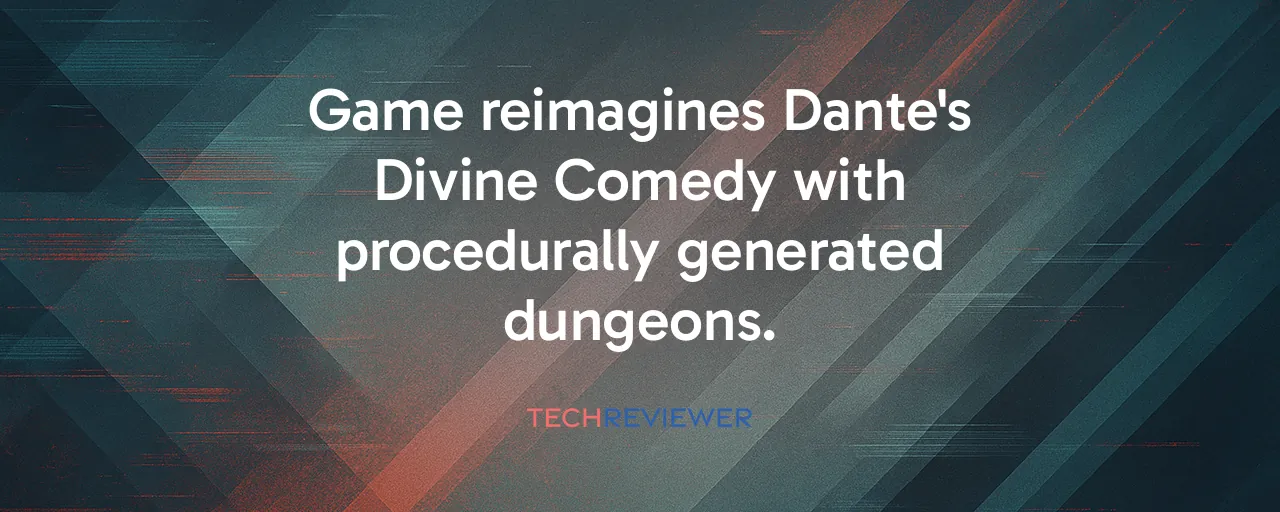When Literature Fuels Your Next Dungeon Crawl
Video games have long drawn from classic stories, but few weave them as tightly into gameplay as La Divina Commedia. Announced at Gamescom 2025, this dark-fantasy action RPG from Jyamma Games takes Dante Alighieri's 14th-century poem and spins it into a maze of procedurally generated dungeons. You're not just reading about Hell's circles; you're slashing through them, with every run reshuffling the map for endless surprises. This blend of cultural heritage and modern design taps into a growing appetite for games that feel both timeless and fresh.
Titles like Lies of P, which reimagined Pinocchio as a gritty souls-like, show how classic tales can anchor innovative gameplay. La Divina Commedia aims higher, using Dante's vivid imagery to craft a world where every descent feels personal. Jyamma Games, a Milan-based studio, builds on its experience with Enotria: The Last Song to deliver a PC-focused adventure that could redefine how we see literary adaptations in gaming.
Dungeons That Never Stay Still
At the heart of La Divina Commedia lies its procedural dungeon system, a clever twist on the souls-like formula. Each run generates new layouts, enemy spawns, and loot tied to the Seven Deadly Sins, ensuring no two trips through Hell feel the same. Players can align their character with a sin, like pride or wrath, which shifts the game's challenges and rewards to match. It's a system that promises to keep you hooked, as every choice reshapes the journey.
Jyamma's reveal trailer showcased shifting corridors and brutal combat, backed by a motion-capture pipeline that brings fluid animations to life. The studio's proprietary engine, refined from Enotria, powers this randomization without bloating development costs. Add in a crafting system that randomizes weapon stats and visuals, and you've got a game built for countless playthroughs, appealing to fans who crave depth and variety.
Learning From Hades and Dante's Inferno
To understand La Divina Commedia's potential, look at two predecessors. Hades (2020) nailed the roguelite formula by blending Greek mythology with tight combat and randomized runs, creating a loop that kept players coming back. Its success came from balancing handcrafted storytelling with procedural variety, a lesson Jyamma seems to be studying closely. La Divina Commedia's alignment system echoes Hades' focus on player agency, letting choices shape the narrative and gameplay.
Contrast that with Dante's Inferno (2010), which took a more linear approach and drew criticism for leaning too heavily on spectacle over substance. Its shallow use of Dante's poem serves as a cautionary tale: authenticity matters. Jyamma appears to sidestep this by rooting La Divina Commedia in Italian cultural heritage, with modular dungeon designs that aim to capture the poem's moral complexity without feeling repetitive.
Challenges and the Road Ahead
Blending a 700-year-old epic with randomized dungeons isn't easy. Procedural generation can sometimes feel repetitive if room designs lack variety, a risk Jyamma must navigate to keep players immersed. Balancing handcrafted narrative moments with dynamic layouts also poses a challenge, as does maintaining performance during real-time generation. Souls-like fans, known for their high standards, will scrutinize whether the game's Dante-inspired theme adds depth or feels tacked on.
Still, the potential is huge. Procedural RPGs like Remnant II prove there's demand for replayable action, and La Divina Commedia could carve a niche by tying its mechanics to a literary classic. Partnerships with cultural institutions or modding communities, as seen with Jyamma's mod-ready toolchain, could further enrich the experience. If the studio delivers, this game might not only entertain but also spark curiosity about Dante's work among a new generation.
